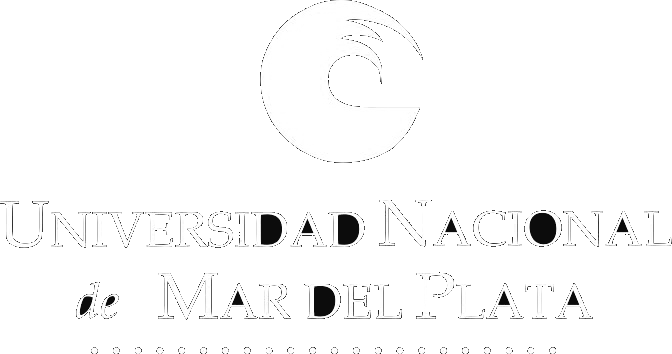WALKING UNDER “LUNAS EBRIAS” AND THE POETIC CONSTRUCTION OF A CITY: FERNANDO BELTRÁN’ S “AQUELARRE EN MADRID”
Abstract
Aquelarre en Madrid was written in 1980 and published three years later. It became one of the poetic referents for the Movida madrileña. Moreover, Fernando Beltrán, the author of this book of poems, found there a relief from the dark personal situation he was living at the moment, as he wrote it wandering the streets of Madrid throughout nine days and nights. Since the first poem titled “Madrid», the young poet from Asturias, whose image is related to that of a flâneur theorized by Walter Benjamin, describes the
city as a subjective urban landscape with a recognizable street map (including constant mentions to specific locations of Madrid like the Plaza del Dos de Mayo or the Embajadores neighborhood). However, his activity seems to develop in a specific context in which the poet only encounters night, women, alcohol and friendship, and uses them as guides for his night walks. Therefore, Beltrán creates in Aquelarre en Madrid a night and ethylic city, which seems to be meaningless outside the poetic context, and which is absolutely dependent of the personal experience of its creator. The aim of this study is to identify and analyze the features of this Madrid conceived by Beltrán, so different from other works of the poet, such as “Gran Vía», his 5th book of poems published in 1990.
Keywords
Full Text:
PDF (Español (España))References
Alonso, Dámaso. Hijos de la ira. Ed. Fanny Rubio. Madrid: Espasa Calpe, col. Austral, 2007.
Bagué Quílez, Luis, y Santamaría, Alberto. «2001-2012: una odisea en el tiempo». Malos tiempos para la épica. Última poesía española (2001-2012). Ed. Luis Bagué Quílez y Alberto Santamaría. Madrid: Visor, Biblioteca Filológica Hispana, 2013. 11-32.
Beltrán, Fernando. Aquelarre en Madrid. Madrid: Ediciones Rialp, col. Adonais, 1983.
---. Donde nadie me llama (Poesía 1980-2010). Madrid: Hiperión, 2011.
Benjamin, Walter. «Charles Baudelaire. Un lírico en la época del altocapitalismo». Obras, libro I, vol. 2. Ed. Rolf Tiedemann y Hermann Schweppenhäuser. Madrid: Abada Editores, 2008. 87-301.
Calvino, Italo. Las ciudades invisibles. Ed. César Palma. Trad. Aurora Bernárdez. Madrid: Ediciones Siruela, Biblioteca Calvino, 2012 (12.ª ed.).
Castro Díez, María Asunción. «La poesía de Fernando Beltrán y “la compleja estética de lo sencillo”». Zurgai: Euskal Herriko Olerkiaren Aldizkaria. Poetas por su pueblo 7 (2008): 99-101.
Corbellini, Natalia. «El rastro inconfundible de su letra: entrevista con Fernando Beltrán». Olivar: Revista de Literatura y Cultura Españolas 7 (2006). Web. 10 nov. 2015..
Cuervo, Javier. «Mi vida ha sido cojonuda, porque amé y fui amado, hice mucho, erré y rectifiqué». La Nueva España. 26 sep. 2011. Web. 10 nov. 2015.
Fuente, Manuel de la. «Fernando Beltrán: “De la poesía se vive, pero no se come”». ABC. 21 mar. 2011. Web. 11 nov. 2015.
Galván, Verónica. «Claroscuro de lo urbano en la poesía de Fernando Beltrán». Espéculo: Revista de Estudios Literarios 40 (2008). Web. 10 nov. 2015.
Jiménez Barca, Antonio. «El negocio de inventar nombres». El País. 18 jun. 2006 Web. 10 nov. 2015.
Miró, Emilio. «Nuevos poetas españoles. Felipe Benítez Reyes y Fernando Beltrán». Ínsula: Revista de Letras y Ciencias Humanas 473 (1986): 6 y 7.
Moga, Eduardo. «Esta casa es contigo (sobre la poesía de Fernando Beltrán)». Quimera. Revista de Literatura 366 (2014): 48-50.
Pont, Jaume. «Algunas notas sobre poesía y ciudad». Espejo y laberinto. Estudios sobre literatura hispánica contemporánea. Lleida: Edicions de la Universitat de Lleida, 2012. 91-99.
Prieto de Paula, Ángel Luis. «La poesía entrometida de Fernando Beltrán». Ínsula: Revista de Letras y Ciencias Humanas 671-672 (2012): 37 y 38.
Prieto de Paula, Ángel Luis, y Langa Pizarro, Mar. Manual de Literatura Española actual. Madrid: Castalia, col. Castalia Universitaria, 2007.
Sánchez Torre, Leopoldo. «Esta casa es contigo. La poesía indiscreta de Fernando Beltrán». Donde nadie me llama (Poesía 1980-2010). Fernando Beltrán. Madrid: Hiperión, 2011. 11-22.
Scarano, Laura. «Tres voces inconformistas en la aquelarre urbana (Beltrán, Riechmann y Wolfe)». Espéculo: Revista de Estudios Literarios 42 (2009). Web. 11 nov. 2015. .
Refbacks
- There are currently no refbacks.









